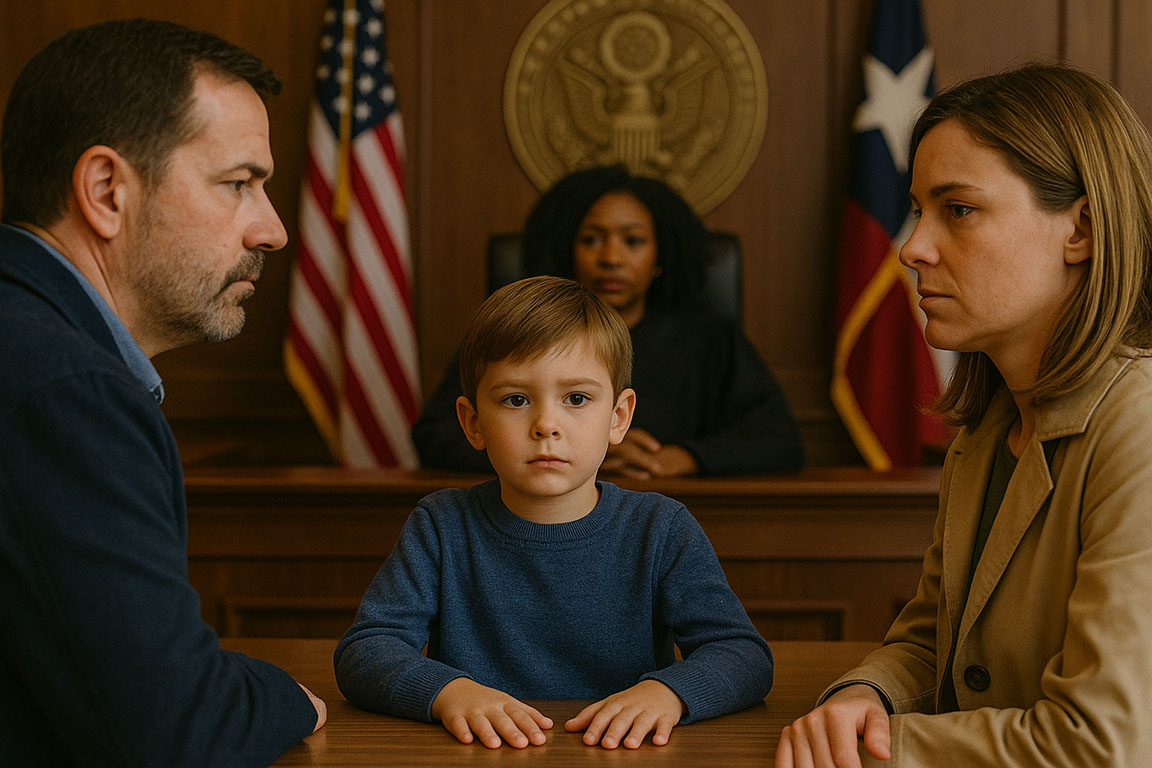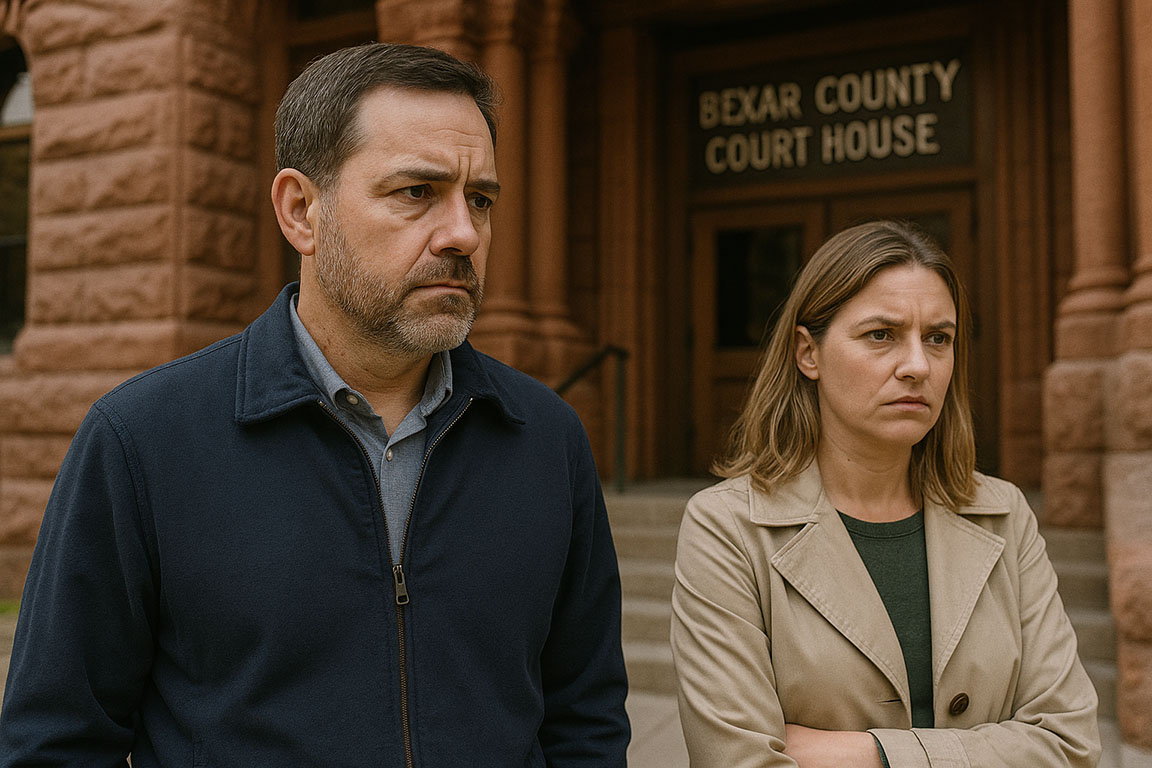How Divorce Works in Bexar County: A Local Legal Guide
Divorce in Texas follows a general structure statewide – but every county handles things a little differently. In Bexar County, that means specific filing procedures, local court expectations, and how judges typically move cases through the system.
At its core, Texas divorce law is based on community property principles, a mandatory 60-day waiting period, and a “just and right” division of marital assets. But how that plays out in practice – especially in a county as busy as Bexar – depends on where you file, what kind of case you have, and how contested things get.
This guide breaks down the local process: who qualifies to file here, where to go, how the courts handle custody, how property is divided, and when legal help makes the most sense. If you’re going through a divorce in the San Antonio area, it pays to know how things actually work in this courthouse – not just what you read online.
Who Can File for Divorce in Bexar County?
Before anything else, you need to make sure the Bexar County courts have jurisdiction over your case. In Texas, divorce can only be filed in a county where certain residency rules are met.

Here’s what’s required:
- One spouse must have lived in the state of Texas for at least six months, and
- That same spouse must have lived in Bexar County for at least 90 days before filing.
You don’t need both spouses to meet the residency requirement – just one. You also don’t need to file in the county where you got married. What matters is where one of you has been living recently.
Important note: If you or your spouse are in the military and stationed in Texas (or out-of-state but claiming Texas as your home), the court may still count that as residency. Texas law makes exceptions for active-duty service members.
Once you’ve met the residency requirement, you’re eligible to file your divorce petition with the Bexar County District Clerk. From there, the local process begins.
Where to File for Divorce in Bexar County
If you’re filing for divorce in Bexar County, everything starts at the District Clerk’s Office, which handles all family law cases for the county.
Here’s where you go:
Bexar County District Clerk – Central Filing Department
Paul Elizondo Tower
101 W. Nueva, Suite 217
San Antonio, TX 78205
Key info:
- Located in downtown San Antonio, across from the Bexar County Courthouse
- Filing hours: Monday through Friday, 8:00 a.m. to 5:00 p.m.
- Parking is limited – use a nearby garage or rideshare if possible
- Security screening is required upon entry
When you arrive, you’ll submit your Original Petition for Divorce. If your case is uncontested and your spouse is willing to sign a waiver of service, bring that too. Otherwise, you’ll arrange for formal service through a constable or private process server.
Filing Tips:
- Bring a photo ID
- Have multiple copies of your petition
- Expect to pay around $300–$350 in filing fees (cash, credit, or money order)
- Ask the clerk for your case number and assigned court
You can also file online through the Texas eFile system, but local rules still apply. If you file electronically, you’ll receive court assignments and hearing dates through official notices from the Bexar County Clerk.
Steps in the Bexar County Divorce Process
Once your divorce petition is filed, the process officially begins – and in Bexar County, things can move quickly or drag out, depending on how contested your case is.
Here’s a step-by-step look at how the process typically plays out:
1. File the Original Petition for Divorce
This is the document that starts the case. It names both spouses and outlines what you’re asking for – property division, custody, support, etc.
2. Serve the Other Party (Unless Waived)
Your spouse must be legally notified of the divorce. This can happen by:
- Signing a Waiver of Service (if agreed), or
- Being served by a constable or licensed process server
3. Temporary Orders Hearing (If Needed)
If you need immediate decisions on things like who stays in the house, temporary custody, or financial support, your attorney can request temporary orders. This is especially common in contested cases.
4. Discovery and Disclosures
Both sides exchange information – bank records, pay stubs, tax returns, property inventories, etc. In Bexar County, standard disclosure rules apply unless modified by the court.
5. Mediation (Often Mandatory in Contested Cases)
Most contested divorces in Bexar County require mediation before trial. A neutral third party helps you try to settle without a judge making the call.
6. Final Hearing or Trial
If you reach an agreement, it’s submitted as an Agreed Final Decree of Divorce. If not, the court sets a trial date. The judge will hear evidence and make decisions on every unresolved issue.
7. Final Decree of Divorce
The final order dissolves the marriage and includes all rulings on property, debts, custody, and support. Once signed, it’s enforceable.
Don’t forget the clock:
Texas requires a 60-day waiting period from the day the petition is filed before a divorce can be finalized – unless there’s family violence or another exception. But most cases, especially contested ones, take several months or more.
How Property and Debt Are Divided in Bexar County
Texas follows the community property system, which means anything earned or acquired during the marriage is presumed to belong to both spouses equally – no matter whose name is on the title or account. But equal doesn’t always mean 50/50, especially in a contested divorce.
What counts as community property?
- Income earned during the marriage
- Homes, cars, or other assets bought while married
- Retirement accounts and pensions
- Debts like credit cards and personal loans taken on together
What’s separate property?
- Anything owned before the marriage
- Gifts and inheritances (even if received during marriage)
- Personal injury settlements (excluding lost wages or medical bills)
If you want to claim something as separate, you must prove it with clear documentation. Otherwise, the court will treat it as community property.
Bexar County judges consider several factors when dividing assets:
- Differences in earning potential
- Who has primary custody of the children
- Whether one spouse wasted or hid assets
- Any history of domestic violence or financial abuse
- Whether one spouse will owe spousal maintenance (alimony)
Debt is treated the same way. Even if the credit card was only in your name, if it was used during the marriage for joint expenses, it’s usually divided.
Pro tip: If you’re trying to protect your separate property, get your paperwork together early – bank records, deeds, account statements, anything showing when and how the asset was acquired.
The final division is based on what the judge considers “just and right” – which doesn’t always mean equal, but should be fair based on the facts.
Child Custody and Support in Bexar County Divorce Cases
When children are involved, Bexar County courts follow Texas law with one clear priority: what’s best for the child. That doesn’t always mean a 50/50 split – and it definitely doesn’t mean one parent automatically gets more rights because of gender.

Custody = Conservatorship in Texas
- Joint Managing Conservatorship (JMC): Most common. Both parents share decision-making for things like education, healthcare, and religion.
- Sole Managing Conservatorship (SMC): One parent makes major decisions alone. Usually granted when there are concerns about abuse, neglect, or absence.
Possession and Access = Visitation
Unless there’s a serious reason not to, courts often use the Texas Standard Possession Order (SPO), which gives the non-custodial parent:
- 1st, 3rd, and 5th weekends of each month
- Thursday evenings during the school year
- Extended time during summer, spring break, and holidays
Parents can also agree to a customized plan. If you and your co-parent agree on a different schedule – and it works for the child – the court is likely to approve it.
Child Support in Bexar County
Child support is calculated using statewide guidelines based on the noncustodial parent’s net monthly income and number of children:
- 1 child = 20%
- 2 children = 25%
- 3 children = 30%
(Percentages adjust based on additional obligations or unique circumstances.)
Support is usually withheld from wages and paid through the Texas State Disbursement Unit (SDU) for tracking and enforcement.
What Bexar County judges look for in custody cases:
- Who’s been the primary caregiver
- Each parent’s ability to meet emotional and physical needs
- Any history of violence, neglect, or parental alienation
- Willingness to co-parent and follow court orders
Bottom line: You don’t need to be perfect – but you do need to be consistent, communicative, and committed to your child’s well-being. That’s what the court wants to see.
How Long and How Much Will Divorce Take in Bexar County?
Every divorce takes time – but how long yours lasts depends on whether you and your spouse agree on the issues or plan to fight them out in court.
Timeframe:
- Uncontested divorce: The shortest possible timeline is 61 days, which includes the Texas-mandated 60-day waiting period from the date of filing. These cases typically involve no disputes and complete agreement on property, custody, and support.
- Contested divorce: Most contested divorces in Bexar County take 6–12 months, but complex cases – especially those involving custody or high-value assets – can take longer, sometimes over a year.
Cost Breakdown:
- Filing fees: Around $300–$350, paid to the District Clerk
- Service of process: $75–$100 if using a constable or private server
- Mediation (if required): $300–$500+ per session
- Attorney fees: Vary widely – hourly rates typically range from $250–$500 depending on the attorney’s experience and case complexity
What can increase costs and delays:
- Disputes over children, property, or business assets
- Hidden income or accusations of misconduct
- Last-minute disagreements before trial
- Scheduling backlogs at the courthouse
Bexar County Tip: Some family courts in San Antonio are backlogged due to high case volume, so even uncontested cases can face minor delays if documentation isn’t filed correctly or hearings aren’t scheduled efficiently.
When to Hire a Divorce Lawyer in Bexar County
Not every divorce needs a lawyer – but many people wait too long to bring one in, especially when they think things will “stay civil.” In Bexar County, hiring a family law attorney early can prevent mistakes, delays, and costly surprises.
You should seriously consider hiring an attorney if:
- You have children and need help with custody, support, or visitation
- You own real estate, a business, or retirement accounts
- You suspect your spouse is hiding money or debt
- Your spouse already hired a lawyer
- You’re unsure about your legal rights or paperwork
Benefits of working with a local attorney:
- Familiarity with the Bexar County court system and judges
- Knowledge of local filing requirements and scheduling practices
- Access to local mediators, evaluators, and experts when needed
- Help avoiding costly procedural mistakes or delays
When it’s okay to consider going without a lawyer:
- You and your spouse have a full agreement on all issues
- No children, no joint property, no debt to divide
- You’re comfortable handling court filings and appearances yourself
Still, even in a simple case, having a lawyer review your agreement before it’s finalized can protect you from long-term consequences. One bad clause in a decree can create problems years down the line.
FAQs About Divorce in Bexar County
Do I have to live in Bexar County to file for divorce here?
Yes – at least one spouse must have lived in Texas for six months and in Bexar County for at least 90 days before filing.
What if my spouse doesn’t agree to the divorce?
Texas is a no-fault state, so you can still get divorced even if your spouse doesn’t agree. The case will move forward as contested, and the court will resolve the issues.
Can we both use the same attorney?
No. One attorney can only represent one party. If your divorce is uncontested, your spouse may choose not to hire an attorney – but the lawyer still works for only one side.
What if we have an agreement already – do we still have to go to court?
If your paperwork is complete and both parties agree, many Bexar County courts will finalize the divorce with just one party appearing for a short “prove-up” hearing. In some cases, virtual hearings are allowed.
Do we have to go to mediation in Bexar County?
In contested cases – especially those involving custody – mediation is usually required before trial. Judges expect both parties to make a good faith effort to settle out of court first.
Can I change the terms of my divorce after it’s finalized?
Certain terms (like custody, visitation, and support) can be modified later if there’s been a material and substantial change in circumstances. Property division, however, is typically final and much harder to change.
What happens if my spouse doesn’t follow the court orders?
You can file a motion to enforce with the court. Violating court orders can lead to fines, wage garnishment, or even jail time in serious cases.
Call Brandi Wolfe for Straightforward Divorce Help in Bexar County
Divorce is a legal process – but in Bexar County, it’s also personal. You need someone who knows the local courts, understands the system, and doesn’t waste time. Brandi Wolfe provides clear, strategic legal guidance for people ready to move forward without the drama.
Call (210) 571-0400 to schedule your consultation and get the direction you need to handle divorce the right way – from the start.

